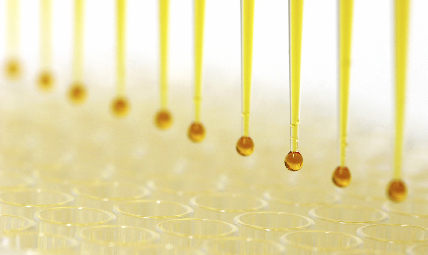Three University of Cambridge projects have been selected as winners in GSK’s 2014 Discovery Fast Track Challenge, which is designed to accelerate the translation of academic research into novel therapies. The University academics, who submitted three of GSK’s 14 winning proposals, will now work with scientists in GSK’s Discovery Partnerships with Academia (DPAc) and the Molecular Discovery Research teams to test their hypotheses and screen targets against GSK’s compound collection. Active compounds could then form the basis of full drug discovery programmes that may ultimately lead to innovative medicines.
The Cambridge winners are University Professor Steve Jackson and Dr Delphine Larrieu, for their work in the treatment of inherited laminopathies; Professor Morris Brown, in the field of primary hyperaldosteronism; and Professor Andrew M. Lever for work targeting HIV infection.
Their work was chosen from a field of 428 entries, received from 234 universities and academic institutes across 26 countries. All of the winning applications were submitted to GSK with the assistance of Cambridge Enterprise, the commercialisation arm of the University of Cambridge.
“Dr. Larrieu and I are delighted to receive a GSK Fast Track Award, which will allow us to combine our in-depth cell and molecular biology expertise with GSK’s vast experience in drug discovery and development,” said Professor Steve Jackson. “Hopefully, this initiative will pave the way for a new therapeutic approach for a devastating human genetic disease and also, perhaps, novel ways of alleviating age-related diseases in larger patient populations.”
We are delighted to have been chosen to partner GSK as one of the winners of the Discovery Fast Track competition. This is the culmination of a long period of research studying HIV assembly, which has involved many scientists and collaborators in other departments in the University.
Professor Andrew Lever
Professor Andrew Lever said “We are delighted to have been chosen to partner GSK as one of the winners of the Discovery Fast Track competition. This is the culmination of a long period of research studying HIV assembly, which has involved many scientists and collaborators in other departments in the University. We believe it is the first time that drug screening against an RNA target has been seriously explored as an antiviral approach to HIV. We look forward to working with GSK on this exciting project and also thank Cambridge Enterprise for their very helpful input into this project.”
Professor Morris Brown said “My whole team is excited that a drug is to be developed against a gene in which our discovery of mutations unmasked the commonest curable cause of Hypertension. We have long worked at the interface between Science and Medicine. It is wonderful that the Science may yield a medical cure for hypertension, whilst our patients participate in the Science leading to such a development.”
The awards, which were announced today, highlight how basic academic research can provide new opportunities for therapeutic development by commercial partners.
“We believe there is a real advantage in bringing together the best in academia and industry to help take innovative ideas forward in drug discovery,” said Duncan Holmes, European Head of DPAc. “The Discovery Fast Track Challenge is designed to find the best ideas for collaborative drug discovery from any therapeutic area, in any geography. We look forward to working with each of the winners to help identify novel quality pharmacologically active compounds for their targets and being part of the researcher’s journey in making a difference.”
Launched in the UK in late 2010, DPAc is a new approach to drug discovery that enables academics to marry their scientific excellence with the drug discovery insight of GSK. For Discovery Fast Track projects that progress to full DPAc programmes, GSK and the academic collaborator share the challenges and rewards of innovation; GSK provides drug discovery expertise and in-kind resources as well as funding activities in the partner laboratories to progress a programme from idea to candidate medicine. Currently GSK has 10 active DPAc collaborations in 10 disease areas.
Photo credit: The needle by Partha S. Sahana via Flickr











